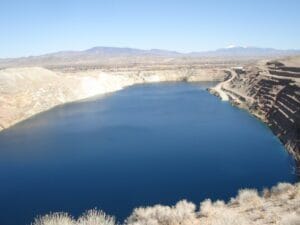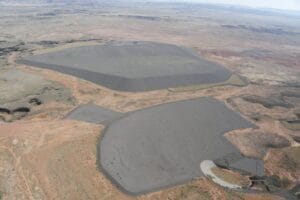
Precision Surveying for Highway Projects That Stay on Track
Precision Surveying for the I-84 Highway Project in Utah Utah’s I-84 highway construction project required precise surveying and engineering expertise to meet the Utah Department


Precision Surveying for the I-84 Highway Project in Utah Utah’s I-84 highway construction project required precise surveying and engineering expertise to meet the Utah Department

Precision Environmental Mapping at Los Alamos National Laboratory Using advanced GPS and GIS technologies, Anderson Psomas delivered cutting-edge solutions for contamination characterization at Los Alamos

Groundwater Recovery at the Anaconda Copper Company Site The Anaconda Copper Company site in Yerington, Nevada, faced significant environmental challenges due to groundwater contamination from

Innovative Engineering and Land Surveying Solutions for Sustainable Infrastructure Enhancing Energy Efficiency in Salt Lake City The Central Heating Plant project for the LDS Conference

Transforming Vision into Reality at the LDS Conference Center The LDS Conference Center in Salt Lake City, Utah, completed in 2000, is a monumental architectural

Comprehensive Soil Remediation for Environmental and Regulatory Success Anderson Psomas’s work at Rio Tinto Kennecott exemplifies cutting-edge soil remediation technologies and environmental management. Decades of

Introduction The Bluewater Uranium Mill, located near Grants, New Mexico, operated as a significant uranium processing facility from 1953 to 1982. While the site played
```
Accurate land surveying is essential for various applications, including construction, property development, and legal property disputes. This accuracy ensures that all boundaries, elevations, and features of the land are precisely recorded, which helps in avoiding conflicts with neighbors and complying with local regulations. Moreover, accurate surveys contribute to the long-term sustainability of projects, minimizing the risk of costly mistakes down the line.
The role of technology in enhancing the accuracy of land surveys cannot be overstated. Advanced tools such as GPS and electronic total stations allow surveyors to capture measurements with exceptional precision. As a result, clients benefit from high-quality surveys that reflect true land characteristics, paving the way for successful project execution and planning.
Selecting the right land surveyor is crucial for achieving the desired outcomes on your project. Factors to consider include the surveyor’s experience, qualifications, and understanding of local regulations. Engaging a surveyor with a proven track record can significantly reduce the risk of errors that might lead to delays or increased costs.
Effective communication is another important aspect when choosing a surveyor. You want someone who comprehends your requirements and can provide clear explanations of the surveying process. A good surveyor will keep you informed at every stage, ensuring that your project remains on track and that you feel confident in their capabilities.
Compliance with local, state, and federal regulations is a fundamental aspect of land surveying that cannot be overlooked. Surveyors must be knowledgeable about zoning laws, building codes, and land-use regulations to ensure that their work meets all legal requirements. This adherence to regulations protects the interests of property owners and helps maintain community standards.